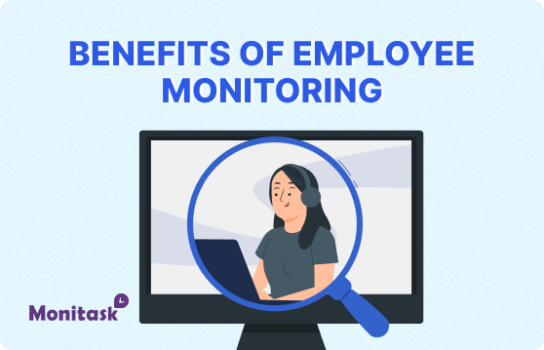Hiring Manager
A hiring manager plays a pivotal role in the recruitment process of any organization. This individual is responsible for identifying, attracting, and selecting the best candidates for open positions within their department or team. While often confused with recruiters or HR professionals, hiring managers have a distinct set of responsibilities and a unique perspective on the hiring process.
What is a Hiring Manager?
A hiring manager is typically a departmental leader or supervisor who is directly responsible for bringing new employees into their team. Unlike HR professionals or recruiters, who may handle hiring across multiple departments, a hiring manager is specifically focused on filling positions within their own area of expertise.
The hiring manager is usually the person who will directly supervise the new hire once they join the company. This direct involvement in the hiring process ensures that the selected candidate not only has the necessary skills and qualifications but also fits well within the team dynamic and company culture.
Key Responsibilities of a Hiring Manager
The role of a hiring manager is multifaceted and involves various tasks throughout the recruitment process. Here are some of the key responsibilities:
1. Identifying Staffing Needs
One of the primary responsibilities of a hiring manager is to assess the current staffing situation within their department and identify any gaps or needs. This involves analyzing workload, projecting future requirements, and determining when new positions need to be created or existing ones filled.
2. Creating Job Descriptions
Once a staffing need is identified, the hiring manager works on creating a comprehensive job description. This document outlines the roles and responsibilities of the position, required qualifications, and desired skills. A well-crafted job description is crucial for attracting the right candidates and setting clear expectations for the role.
3. Collaborating with HR and Recruiters
Hiring managers often work closely with HR departments and recruiters to streamline the hiring process. This collaboration might involve discussing recruitment strategies, reviewing resumes, and coordinating interview schedules. The hiring manager's input is valuable in ensuring that the recruitment efforts align with the specific needs of their department.
4. Reviewing Resumes and Applications
While HR or recruiters might do an initial screening, hiring managers are typically involved in reviewing resumes and applications of shortlisted candidates. Their expertise in the field allows them to identify candidates who possess the necessary skills and experience for the role.
5. Conducting Interviews
Perhaps one of the most critical responsibilities of a hiring manager is conducting interviews. This involves preparing relevant questions, evaluating candidates' responses, and assessing their fit for both the role and the team. Hiring managers may conduct multiple rounds of interviews, including initial screenings, technical interviews, and final decision interviews.
6. Making Hiring Decisions
Ultimately, the hiring manager is responsible for making the final decision on which candidate to hire. This decision is based on a combination of factors, including the candidate's qualifications, interview performance, cultural fit, and potential for growth within the organization.
7. Onboarding New Hires
The hiring manager's role doesn't end with the selection of a candidate. They are also involved in the onboarding process, helping new hires integrate into the team and become productive members of the organization.
Skills and Qualities of an Effective Hiring Manager
To excel in their role, hiring managers should possess a unique set of skills and qualities. These include:
1. Industry Expertise
A deep understanding of their specific industry and role requirements is crucial for hiring managers. This knowledge allows them to accurately assess candidates' qualifications and potential contributions to the team.
2. Communication Skills
Effective communication is essential for hiring managers. They need to articulate job requirements clearly, ask probing questions during interviews, and provide feedback to both candidates and internal stakeholders.
3. Decision-Making Ability
Hiring managers must be able to make informed decisions based on various factors. This includes weighing the pros and cons of different candidates and making choices that align with the organization's goals.
4. Emotional Intelligence
The ability to read and understand people is crucial in the hiring process. Hiring managers should be able to assess not just technical skills but also soft skills and cultural fit.
5. Time Management
Balancing hiring responsibilities with regular job duties requires excellent time management skills. Hiring managers need to efficiently handle the recruitment process without neglecting their other responsibilities.
Challenges Faced by Hiring Managers
While the role of a hiring manager is rewarding, it comes with its share of challenges. Some common obstacles include:
1. Time Constraints
Hiring managers often need to balance their regular job duties with the time-consuming process of recruitment. This can lead to delays in the hiring process or rushed decisions.
2. Skills Gap
In rapidly evolving industries, hiring managers may struggle to find candidates with the exact skill set required for the role. This often necessitates a balance between hiring for current needs and potential for growth.
3. Competitive Job Market
In a candidate-driven market, hiring managers may face difficulties in attracting top talent, especially when competing against other companies offering attractive packages.
4. Unconscious Bias
Like all humans, hiring managers can be susceptible to unconscious biases that may influence their decision-making process. Overcoming these biases is crucial for fair and effective hiring.
5. Limited Resources
Hiring managers may sometimes face constraints in terms of budget or available positions, which can limit their ability to bring in the desired talent.
Best Practices for Hiring Managers
To overcome these challenges and excel in their role, hiring managers can adopt several best practices:
1. Develop a Structured Hiring Process
Having a well-defined, structured hiring process can help streamline recruitment efforts and ensure consistency across all candidates. This might include standardized interview questions, assessment criteria, and evaluation methods.
2. Leverage Technology
Utilizing applicant tracking systems (ATS) and other recruitment technologies can help hiring managers manage applications more efficiently and identify top candidates more quickly.
3. Build a Talent Pipeline
Proactively networking and maintaining relationships with potential candidates can help hiring managers quickly fill positions when they become available.
4. Prioritize Diversity and Inclusion
Actively working to create diverse and inclusive teams can lead to better decision-making, increased innovation, and improved company performance.
5. Provide Timely Feedback
Keeping candidates informed throughout the hiring process can improve the candidate experience and enhance the company's employer brand.
6. Continuously Improve Skills
Staying updated on the latest hiring trends, interview techniques, and industry developments can help hiring managers make better hiring decisions.
The Impact of Hiring Managers on Organizational Success
The role of hiring managers extends far beyond just filling open positions. Their decisions have a significant impact on the overall success of the organization:
1. Team Performance
By selecting the right candidates, hiring managers directly influence the performance and productivity of their teams. A well-chosen hire can boost team morale and efficiency.
2. Company Culture
Hiring managers play a crucial role in shaping company culture by selecting candidates who align with the organization's values and vision.
- Innovation and Growth
By bringing in fresh talent with new ideas and perspectives, hiring managers can drive innovation and contribute to the company's growth.
4. Employee Retention
Making good hiring decisions can lead to improved employee satisfaction and retention, reducing turnover costs for the organization.
5. Competitive Advantage
In industries where talent is a key differentiator, effective hiring managers can help companies gain a competitive edge by securing top talent.
The Future of Hiring Managers
As the workplace continues to evolve, so does the role of hiring managers. Several trends are shaping the future of this position:
1. Remote Hiring
With the rise of remote work, hiring managers are adapting to virtual interviewing and onboarding processes. This requires new skills in assessing candidates and building team cohesion in a digital environment.
2. Data-Driven Decision Making
Hiring managers are increasingly using data analytics to inform their decisions. This includes analyzing past hiring successes, predicting candidate success, and optimizing the hiring process.
3. Emphasis on Soft Skills
As automation and AI take over more technical tasks, hiring managers are placing greater emphasis on soft skills like adaptability, emotional intelligence, and creativity.
4. Continuous Learning
The rapid pace of change in many industries means hiring managers need to focus not just on current skills but also on a candidate's ability to learn and adapt.
5. Employer Branding
Hiring managers are becoming more involved in shaping and promoting the company's employer brand to attract top talent in a competitive market.
Conclusion
The role of a hiring manager is complex and multifaceted, requiring a unique blend of industry expertise, people skills, and strategic thinking. As the gatekeepers of talent for their teams, hiring managers play a crucial role in shaping the future of their organizations.
By understanding the nuances of this role, developing key skills, and adopting best practices, hiring managers can significantly impact their organization's success. As the workplace continues to evolve, so too will the role of the hiring manager, adapting to new challenges and opportunities in the ever-changing landscape of talent acquisition.
In an era where talent is often considered the most valuable asset of any organization, the importance of effective hiring managers cannot be overstated. Their ability to identify, attract, and retain top talent will continue to be a critical factor in organizational success for years to come.


